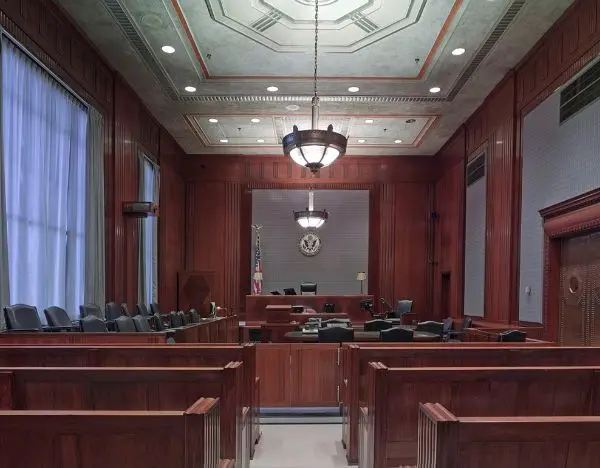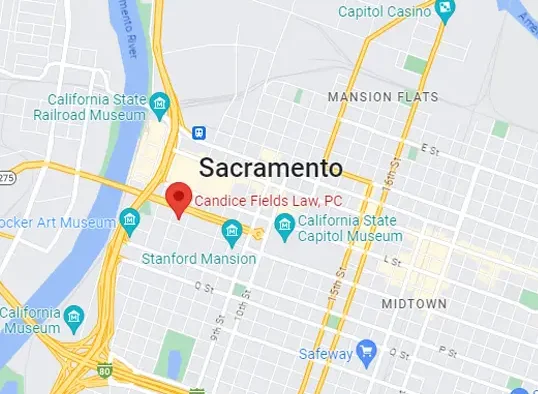Defending Online Solicitation of Minor Charges
In the digital age, online solicitation of a minor has become a focal point of law enforcement efforts and prosecutorial actions across the country. These charges involve an adult communicating with someone believed to be a minor via the internet, with the intent of committing a sexual offense. At Candice Fields Law, P.C., we understand the complexities involved in these cases and the significant consequences that the accused faces. Our online solicitation of minors lawyers are committed to providing a robust defense for individuals charged, employing strategic approaches tailored to the nuances of each case. For immediate assistance, contact our office today.
What is Online Solicitation of a Minor Charges?
Online solicitation of a minor charges are brought against individuals accused of using the internet or other electronic communication methods to engage minors (typically anyone under the age of 18) in sexually explicit conversations, or to coerce or entice them into sexual activities. This form of solicitation is a serious criminal offense, with laws specifically designed to protect minors from online predators. The charges can stem from interactions via social media, chat rooms, email, instant messaging platforms, or any digital communication service.
Key Elements of the Charge
The specific legal definitions and elements of online solicitation of a minor can vary by jurisdiction, but they generally include several key components:
- Use of Electronic Communication: Utilizing the internet or electronic devices to communicate with a minor.
- Nature of the Conversation: Engaging in sexually explicit conversations aimed at corrupting the minor’s morals or enticing them into sexual activity. This can also include the exchange or solicitation of nude or sexually explicit images.
- Intent: Demonstrating an intent to engage in sexual activity with the minor, which can be inferred from the communications and actions of the accused.
- Age of the Minor: The individual being solicited is under the legal age of consent, which varies by state but is generally 18 years old in the United States.
Federal and State Laws
Both federal and state laws address online solicitation of minors, with federal laws typically coming into play when the activity crosses state lines or involves federal jurisdictions. State laws may have specific provisions and penalties that differ from one state to another but are universally strict due to the priority of protecting children from exploitation.
Potential Consequences of an Online Solicitation of a Minor Charge

An online solicitation of a minor charge carries significant legal and social consequences, impacting virtually every aspect of an accused individual's life. The severity of these consequences can vary based on several factors, including the jurisdiction, the specific nature of the charges, prior criminal history, and the age difference between the accused and the minor. Here's an overview of the potential consequences:
Legal Consequences
Incarceration
Conviction often results in prison time, with sentences varying widely depending on state laws, federal statutes, and the specifics of the offense. Mandatory minimum sentences are common, and in some cases, individuals may face several years to decades in prison.
Fines
Substantial fines may be imposed, potentially amounting to thousands or even hundreds of thousands of dollars, further straining an individual's financial stability.
Sex Offender Registration
Perhaps one of the most enduring consequences of a conviction is the requirement to register as a sex offender, often for life. This registration is public and can severely limit where an individual can live, work, and travel, impacting many aspects of daily life.
Probation and Parole
Even if prison time is avoided or minimized, individuals may be placed on probation or parole, subject to strict conditions such as regular check-ins with a probation officer, attendance at treatment programs, and restrictions on internet use.
Personal and Social Consequences
Damage to Reputation
The stigma associated with a sex offense, particularly one involving minors, can irreparably damage an individual's reputation, affecting personal relationships, community standing, and overall quality of life.
Employment Challenges
Convicted individuals may find it extremely difficult to secure employment, especially in fields involving children, education, or certain professional licenses. In many cases, employers are hesitant to hire someone with a sex offense conviction, leading to long-term unemployment or underemployment.
Educational Opportunities
Higher education opportunities may also be restricted, with some colleges and universities denying admission to individuals convicted of sex crimes. Financial aid opportunities may also be limited.
Housing Restrictions
Sex offender registration can limit housing options, as registrants are often barred from living near schools, parks, and other places where children are present. This can make finding suitable housing challenging.
Relationships and Family Life
The personal relationships of those convicted can be profoundly affected, including estrangement from family, difficulties in maintaining or starting romantic relationships, and potential impacts on custody and visitation rights if the individual has children.
Travel Restrictions
Registered sex offenders may face restrictions on travel, both domestically and internationally. Some countries may deny entry to individuals convicted of sex crimes, and movement within certain areas may be restricted.
Given the gravity of these consequences, it is crucial for anyone facing online solicitation of a minor charges to seek experienced legal representation. A skilled defense attorney can navigate the complexities of the legal system, challenge the prosecution's case, and work to mitigate the potential impact on the accused's life.
How an Online Solicitation of Minor Defense Lawyer Can Help
Our firm's approach to defending against online solicitation charges is comprehensive and dynamic, focusing on both the legal and technical aspects of each case.
1. Evaluating the Evidence
We start by conducting a thorough review of the prosecution's evidence, including chat logs, emails, and any other digital communication. Our goal is to identify any inconsistencies, potential entrapment scenarios, or instances where constitutional rights may have been violated.
2. Challenging the Prosecution's Case
- Entrapment Defense: If a law enforcement officer initiated the discussion leading to the alleged offense or used coercion, we might argue entrapment, asserting that our client was induced to commit a crime they would not have otherwise committed.
- Age Misrepresentation: We explore the circumstances under which the minor’s age was represented. In some cases, if the accused was led to believe the individual was of legal age, it can significantly impact the defense strategy.
- Intent: Proving intent is crucial for a conviction. We scrutinize the evidence to challenge the prosecution's claims about our client's intentions, focusing on ambiguities that may suggest a lack of criminal intent.
3. Leveraging Expert Testimony
In cases involving complex technical evidence, we work with digital forensics experts who can provide critical insights into the evidence's authenticity, potential tampering, or technical issues that could affect its reliability.
4. Negotiating with Prosecutors
When appropriate, we negotiate with prosecutors to reduce charges or penalties, focusing on alternatives to incarceration, such as counseling or rehabilitation programs, especially for first-time offenders or those without a significant criminal history.
5. Trial Advocacy
If your case proceeds to trial, our experienced trial attorneys are prepared to vigorously defend your rights in court, presenting a strong, evidence-based defense and challenging the prosecution's narrative at every turn.
Your Defense Starts With Candice Fields Law, P.C.

Facing charges of online solicitation of a minor can be an overwhelming experience, but you don’t have to face it alone. Candice Fields Law, P.C. is here to stand by your side, offering legal representation and compassionate support throughout the process. We aim to ensure your rights are protected and work towards the best possible outcome for your case.
If you or a loved one has been charged with online solicitation of a minor, contact Candice Fields Law, P.C. today. Let our experience be your guide and your defense.
Online Solicitation of Minor Defense Lawyer FAQs
At Candice Fields Law, P.C., we understand the stress and uncertainty that come with facing charges for online solicitation of a minor. Clients often have many questions about their situation and how an experienced internet sex crime defense lawyer can assist. Below are answers to some frequently asked questions that can provide clarity and direction during this challenging time.
What exactly constitutes online solicitation of a minor?
Online solicitation of a minor involves using the internet or any digital communication tool to engage a person believed to be under 18 in conversations or activities that are sexual in nature, with the intent of committing a sexual offense. This can include sending explicit messages, sharing or requesting inappropriate images, or attempting to arrange a meeting with the minor for illicit activities.
Can I be charged if the person was actually an adult pretending to be a minor?
Yes, you can still face charges even if the person you were communicating with was an adult, such as an undercover officer, pretending to be a minor. The law focuses on the accused's intent and belief at the time of the interaction.
How can a defense lawyer help me if I'm accused of online solicitation of a minor?
A skilled defense lawyer can help in several ways:
- Evidence Review: Analyzing the prosecution's evidence for flaws or violations of your rights.
- Legal Defense: Building a strong legal defense that may include challenging the alleged intent, the manner in which evidence was collected, or arguing entrapment.
- Negotiation: Negotiating with prosecutors to potentially reduce charges or penalties.
- Court Representation: Representing you in court, presenting your defense, and advocating on your behalf.
What are the potential consequences of a conviction?
The consequences can be severe, including imprisonment, fines, mandatory registration as a sex offender, and long-term restrictions on employment and residency. The impact on your personal and professional reputation can also be significant.
What is entrapment, and can it be used as a defense?
Entrapment occurs when law enforcement induces a person to commit a crime they would not have otherwise committed. If an officer or agent initiated the illicit conversation and coerced you into committing illegal acts, it might be possible to use entrapment as a defense. However, proving entrapment can be complex and requires a nuanced legal strategy.
Can charges be dropped or reduced?
Yes, in some cases, charges can be dropped or reduced, especially if there are weaknesses in the prosecution's case, if your rights were violated during the investigation, or through negotiation by your defense lawyer. Each case is unique, so outcomes can vary based on the specifics of your situation.
How soon should I contact a criminal defense attorney?
Immediately. The earlier you involve a criminal defense lawyer, the better they can protect your rights, advise you on avoiding common pitfalls, and begin developing a strong defense strategy.





